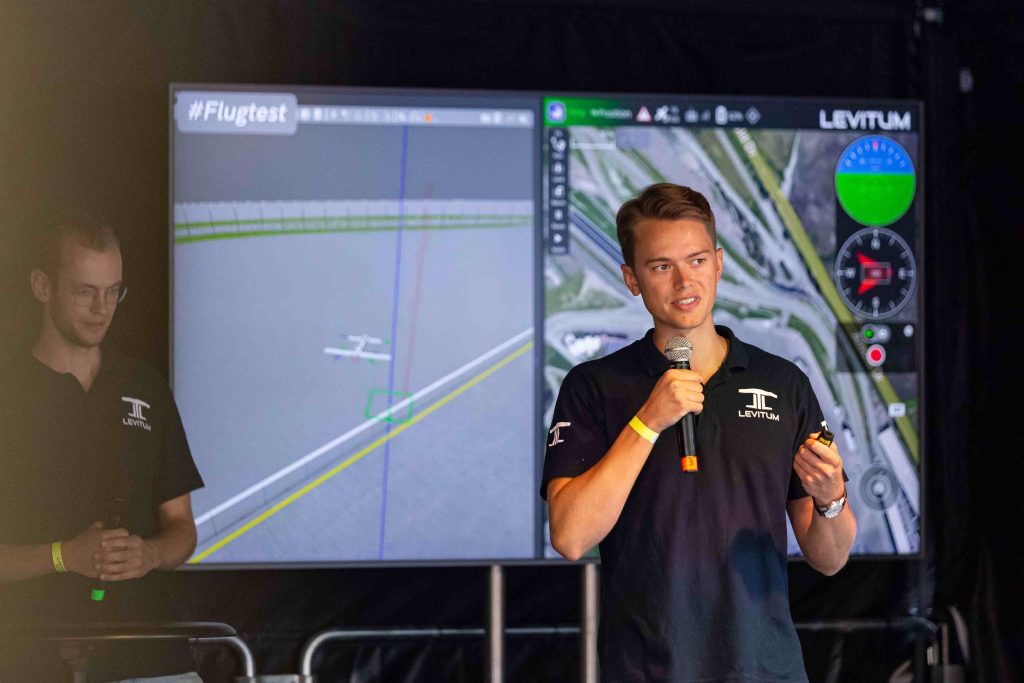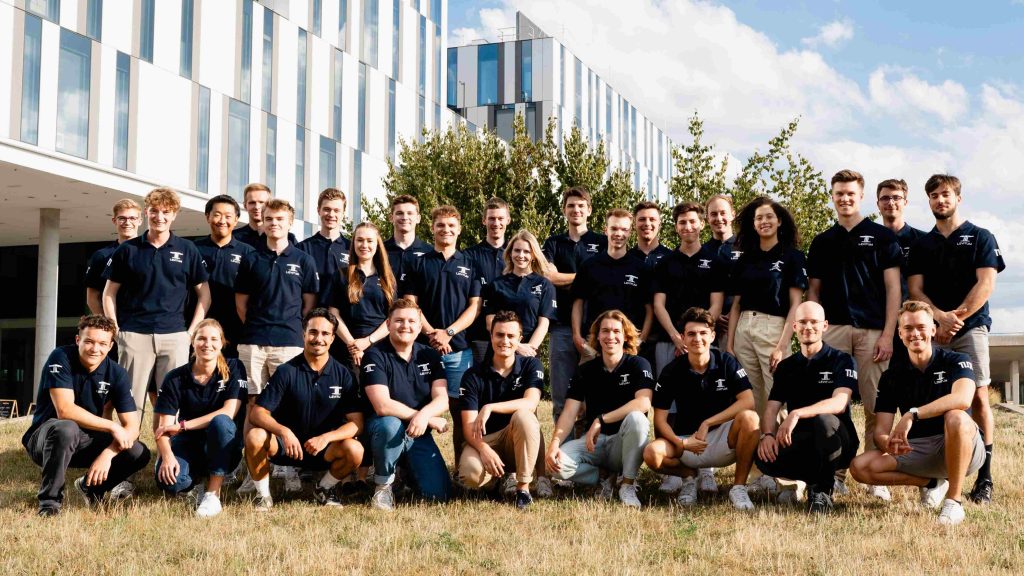A Team of Students of the Technical University of Munich (TUM)
Building the World's Longest Range eVTOL Drone
Our Mission
Using Hydrogen to revolutionize UAVs
We are developing a hydrogen powered eVTOL drone capable of flying over 300 km without refueling. This way, we want to build the world's longest range eVTOL drone below 25 kg Take-Off Mass. We achieve this by using state-of-the-art fuel cell systems and modern Type IV pressure tanks. This way, our Prototype "Mercurius" will outperform any other commercial drone. Our Idea was part of the top three winning teams of the NASA-DLR Designchallenge 2020 and part of the top ten pitching ideas of the TUM IdeAward 2020.


Our Team
Using Hydrogen to revolutionize UAVs
LEVITUM is a team of more than 40 highly motivated Master and Bachelor students of the departments of Mechanical Engineering, Aerospace, the TUM School of Management, Electrical Engineering, Physics, Information Technology and the Munich School of Engineering.
You are enthusiastic to revolutionize eVTOL technology just like us? Join our team!
Why Hydrogen Propulsion?
Highest Energy Density
With an energy density of 33.33 kWh/kg hydrogen has more energy density than any other element. The hydrogen fuel cell offers a possibility to use this potential efficiently for electric powertrains. Modern hydrogen tanks already achieve usable electrical energy densities of over 1600 Wh/kg. This is more than six times the capacity of modern lithium ion batteries.
High Safety Level
Hydrogen fuel cell systems are safe. Modern Type IV pressure tanks are safe against overpressure, fire or even bullet impact. In case of emergency, the hydrogen can be released through a PRD within a very short time. Due to the 13 times lower density of hydrogen compared to air, it evaporates immediately without any danger to the environment.
Low Costs
According to the US Department of Energy (DoE), fuel cells can be produced cheaper than a comparable lithium-ion battery system, depending on the powertrain. The cost advantage is reinforced by the longer service life of more than 3000 operating hours and optimal utilization due to refueling times of less than 5 minutes. There are already first manufacturers developing fuel cell systems for drones.
LEVITUM Newsroom
Latest News
September 2023: LEVITUM achieves transition into horizontal flight
MORE 〉
LEVITUM achieves transition into horizontal flight
March 2023: First successful system test with hydrogen
MORE 〉
First successful system test with hydrogen
January 2023: LEVITUM presents project at Future Slam
MORE 〉
LEVITUM presents project at Future Slam 2023
November 2022: LEVITUM achieves first fully autonomous mission
MORE 〉




